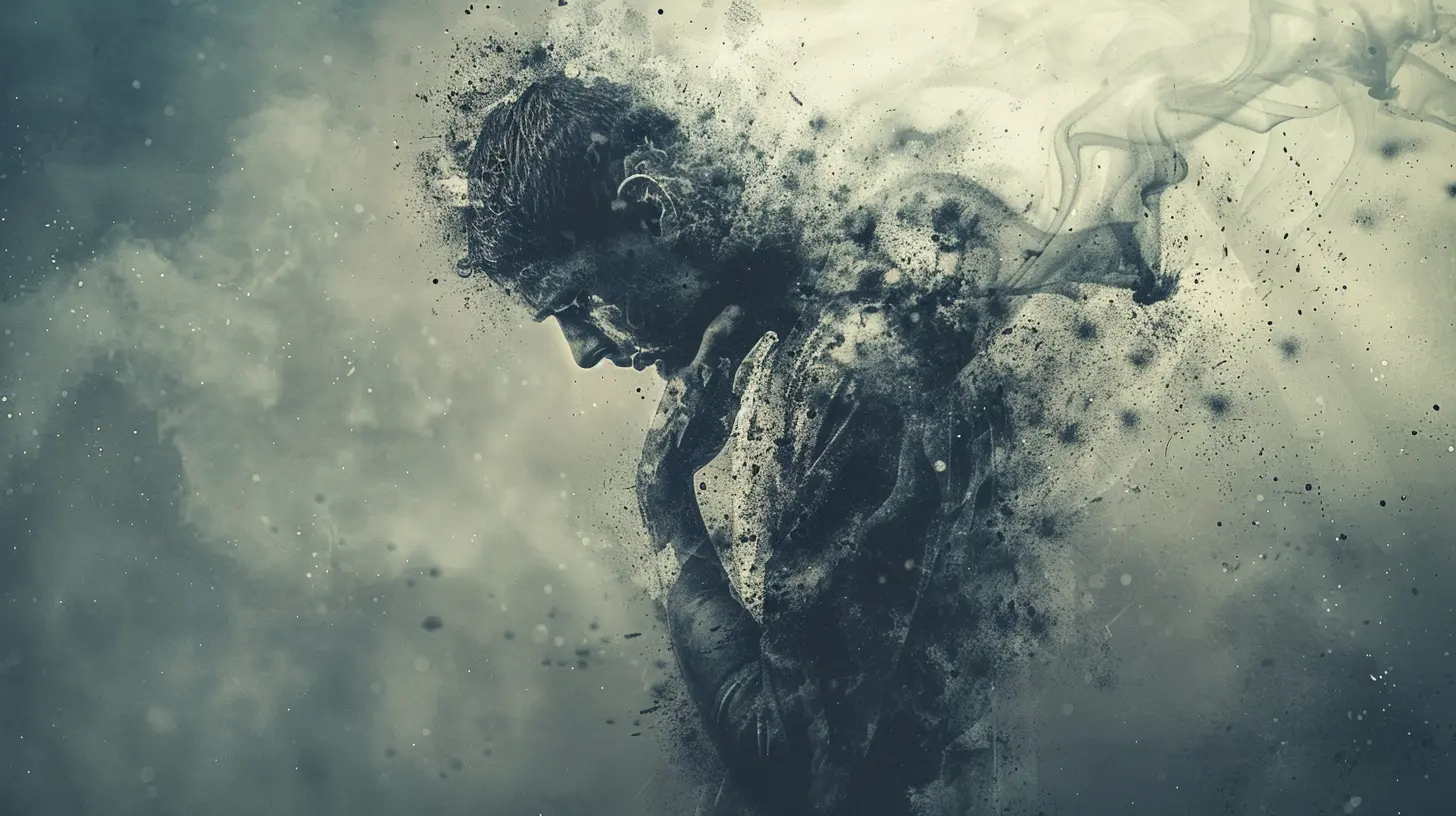The Emotional Toll of Living with Chronic Mental Illness
23 May 2025
Living with a chronic mental illness is like being on an emotional rollercoaster that you never signed up for. One minute, you're doing okay, managing things, and the next—bam!—you're hit with a wave of exhaustion, self-doubt, or overwhelming sadness. It’s unpredictable, exhausting, and often misunderstood.
For those who live with conditions like depression, anxiety, bipolar disorder, or OCD, the journey isn't just about managing symptoms; it's about battling the invisible emotional toll that comes with it. So, grab a cup of coffee (or tea, if that’s your thing), and let’s talk about the real, raw, and often unspoken emotional weight of living with a chronic mental illness. 
The Emotional Whiplash of Chronic Mental Illness
1. The Never-Ending Battle with Guilt and Shame
Ever felt guilty for feeling sad when logically, you have "nothing to be sad about"? Welcome to the frustrating world of mental illness guilt. It’s like having an uninvited guest in your mind, constantly whispering, “You should be doing better.”Society often tells us to “just be happy” or “think positive,” which only fuels the shame. No one would tell someone with a broken leg to “walk it off,” yet when it comes to mental health, people expect it to be a matter of willpower. Spoiler alert: it’s not.
2. Fatigue That Goes Beyond Just Being ‘Tired’
Mental illness fatigue isn’t just about feeling sleepy. It’s the kind of exhaustion that seeps into your bones and makes even the smallest tasks feel monumental. Taking a shower? Climbing Mount Everest might be easier. Responding to a text? Feels like drafting a thesis.It's not just physical either—it's emotional. The constant overthinking, fighting negative thoughts, and keeping up with daily responsibilities drains every last drop of energy.
3. The Emotional Toll of Isolation
Ever canceled plans because simply existing feels like too much? You’re not alone. Social withdrawal is one of the cruel tricks mental illness plays on you. The irony? You crave connection but simultaneously feel unable to maintain it.Friends might not understand why you keep pulling away, and explaining it feels like another exhausting task. But here’s the truth: mental illness can make you feel like a stranger in your own life, like you’re watching from the sidelines while everyone else moves forward. 
The Struggle Between Wanting Help and Avoiding It
4. The Exhausting Task of Explaining Yourself
Talking about mental illness often feels like trying to explain quantum physics to a toddler. It’s not that people don’t care—they just don’t always get it."Why are you anxious? There’s nothing to worry about!"
Oh wow, thanks, Karen. Didn’t think of that. Guess I’m cured.
Having to constantly justify your emotions or prove that your illness is "real" takes a serious mental toll. It’s frustrating, tiring, and sometimes makes you want to retreat even further.
5. The Rollercoaster of Medication and Therapy
Finding the right treatment for a chronic mental illness is like online dating—there’s a lot of trial and error, and sometimes, things just don’t work out.Medication can be a lifesaver, but it can also come with side effects that make you question if it’s worth it. And therapy? While incredibly helpful, it can feel like emotional CrossFit—rewarding but absolutely exhausting.
The emotional toll of constantly tweaking medication, switching therapists, or trying new coping techniques is enough to make anyone want to just throw in the towel. But of course, giving up isn’t an option, so the cycle continues. 
The Frustration of Being Misunderstood
6. The Stigma That Just Won’t Die
Despite all the awareness campaigns, mental illness stigma is still alive and kicking. People assume you're lazy, attention-seeking, or just "not trying hard enough."But here’s the truth: living with a chronic mental illness requires incredible strength. Getting out of bed, going to work, maintaining relationships, and simply existing can sometimes feel like running a marathon with weights strapped to your ankles.
People wouldn’t judge someone for taking insulin if they had diabetes, so why is mental health treatment any different? Unfortunately, that’s a battle many of us still face.
7. The Frustration of Good Days and Bad Days
One of the hardest parts of chronic mental illness is its inconsistency. One day, you feel like you’ve got things under control, and the next, you’re drowning in emotions you can’t explain.It’s frustrating not knowing when the next wave of anxiety, depression, or intrusive thoughts will hit. Imagine trying to plan your week, but your brain refuses to cooperate. It makes long-term commitments, relationships, and even daily responsibilities feel like a gamble. 
Finding Light in the Darkness
Despite the emotional toll, there is hope. Yes, chronic mental illness is exhausting, frustrating, and at times, downright unfair. But there are ways to cope and find some light in the darkness.8. The Power of Self-Compassion
Being kind to yourself isn’t always easy, but it’s crucial. Some days, just getting through the day is enough. Remind yourself that you’re doing the best you can with the tools you have.Talk to yourself like you would to a close friend. You wouldn’t berate them for struggling, so why do it to yourself?
9. Building a Support System That Actually Helps
Not everyone will understand what you're going through, and that’s okay. What matters is finding the right people—the ones who check in, listen without judgment, and respect your boundaries.It’s also important to set boundaries with those who don’t support your mental health journey. Protecting your peace should always be a priority.
10. Celebrating Small Wins
When you live with a chronic mental illness, even the smallest victories deserve recognition. Got out of bed today? That’s a win. Showered? Another win. Sent that email you’ve been avoiding? You’re killing it.Progress isn’t always about big, life-changing moments. Sometimes, it’s simply about surviving another day, and that in itself is worth celebrating.
Final Thoughts
Living with a chronic mental illness is more than just managing symptoms—it’s a daily emotional battle. The exhaustion, guilt, and frustration can feel overwhelming, but you’re not alone.Take it one day at a time, be kind to yourself, and remember—your struggles don’t define you. You're stronger than you think, and every single day you keep fighting is proof of that.
all images in this post were generated using AI tools
Category:
Psychiatric DisordersAuthor:

Paulina Sanders
Discussion
rate this article
3 comments
Beatrix Underwood
Living with chronic mental illness can be overwhelmingly challenging. It's essential to prioritize self-care, seek support, and cultivate resilience in navigating these emotional hurdles.
June 8, 2025 at 4:00 AM

Paulina Sanders
Thank you for highlighting the importance of self-care and support. Cultivating resilience is indeed crucial in managing the emotional challenges of chronic mental illness.
Nellie Gonzalez
Chronic mental illness is an invisible battle, often underestimated by those untouched by its weight. Understanding the emotional toll is crucial—not just for support but for dismantling stigma. Only then can we foster compassion and create spaces for healing and resilience.
May 29, 2025 at 3:37 AM

Paulina Sanders
Thank you for highlighting the importance of understanding and compassion. Dismantling stigma is essential for creating supportive spaces for those facing chronic mental illness. Your insight is invaluable.
Jaxon McIlroy
Living with chronic mental illness is incredibly challenging; the emotional burden can be exhausting and isolating, yet support and understanding are crucial.
May 26, 2025 at 4:09 AM

Paulina Sanders
Thank you for highlighting the importance of support and understanding; they are vital in alleviating the emotional burden of chronic mental illness.



